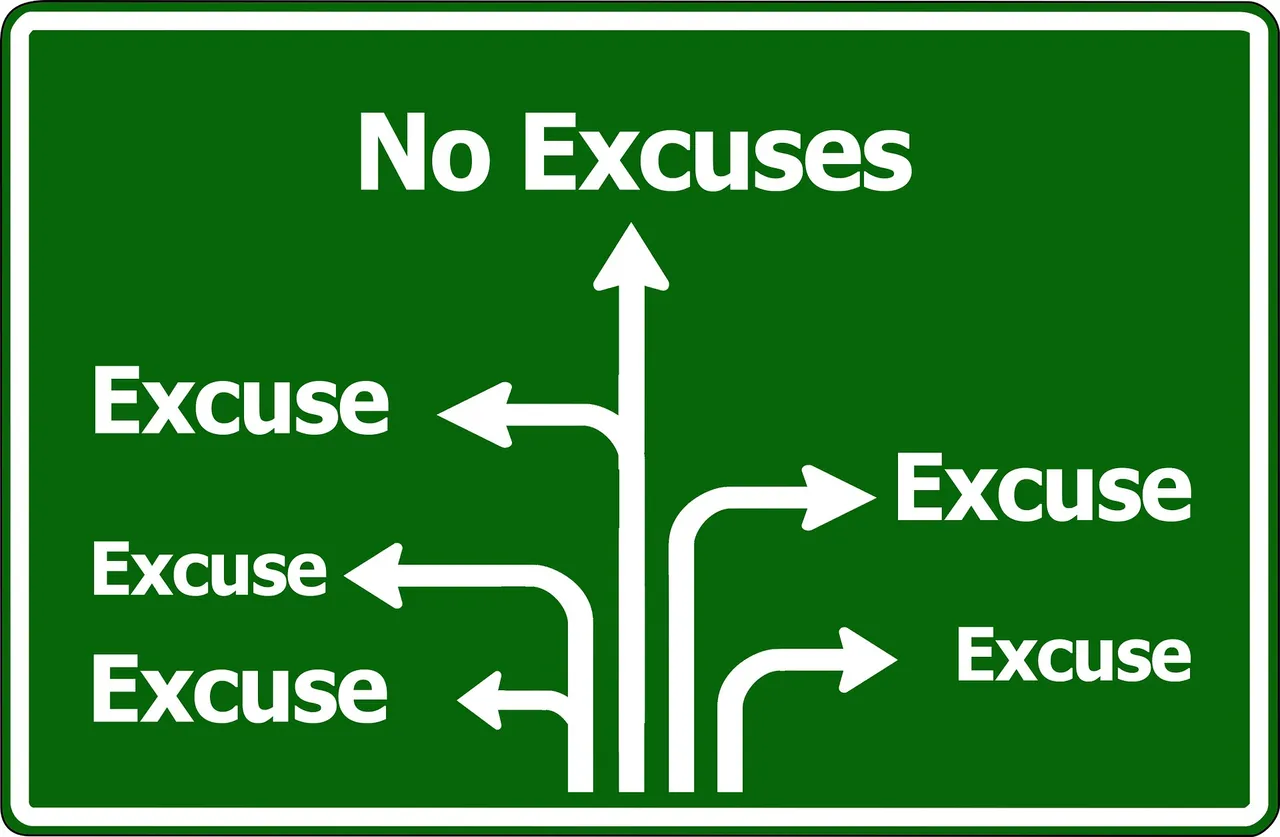
We make excuses when things don't go our way. This way, we neglect taking responsibility for our actions.
Have you ever tried to explain away why you didn’t, couldn’t, shouldn’t or just wouldn’t do something?. This is a sign that you are living a life full of excuses.
But what are excuses, really?
Excuses are mainly a means of placing the blame of an internal problem on an external condition. You shift the blame to other people, events or situations. It prevents you from living to your full potential
Why do we keep making excuses?
There are many reasons why people make excuses. In fact, everyone has a variety of reasons, myself included.
The fear of failure, embarrassment and uncertainty are some of the few out of numerous other reasons for making excuses.
Guess what? Excuses are for losers. Losers are scared, they always want to play safe. Our fears typically emerge due to a lack of understanding, information, resources, experience or perspective.
Anthony Robbins once said that fear is nothing more than “False Evidence Appearing Real.”
Losers have self-made limiting beliefs, a pessimistic outlook on life and have poor judgement when it comes to making critical decisions. They are paralyzed and have a backward movement in every area of their life.
Losers struggle with self-confidence. That is why they tend to make excuses for their life and circumstances in a feeble attempt to boost their self-esteem.
However, all they are really doing is creating the illusion of security. This is like masking pain with pain killers.
Living a life of excuses can have dire and lasting consequences. Not only will excuses prevent you from reaching your full potential, but they will also hold you back from recognizing opportunities, strengths, and skills you might have that could help you overcome your life’s problems.
If you don’t challenge yourself to reach new heights, you will never really know what you’re truly capable of.
New opportunities lie hidden around every corner. However, you will never find them if you riddle your mind with unending excuses.
To overcome your excuses, you must first admit that you’re making them in the first place. This can, of course, be difficult. However, it’s entirely necessary if you want to avoid succumbing to the inevitable consequences. Ask yourself:
What excuses do I tend to make?
What am I settling for?
Why am I making these excuses?
Then list down the consequences that result from making excuses. Ask yourself:
How do these excuses prevent me from moving forward?
How do they cripple my ability to get what I want?
Excuses often lead to stagnation and a life of regrets. Moreover, success in any field of endeavor requires a period of discomfort where we must venture into unfamiliar territories that lead to unexpected scenarios.
Benjamin Franklin once said that:
He that is good for making excuses is seldom good for anything else.
As harsh as that sounds, it’s probably not too far away from the truth. Sometimes we get so absorbed in making excuses about how things didn’t turn out the way we had expected, that we forget to focus on making the best of every situation — no matter the outcome.
Just maybe, from today onward, we will remember Benjamin’s words and take them to heart. Stop making excuses.
